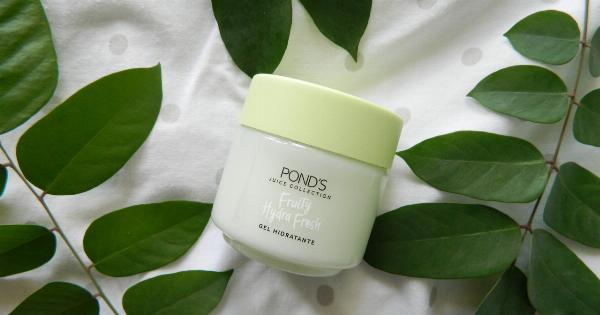Collagen is an essential protein found naturally in our skin, bones, and muscles. It provides the body with structure, flexibility, and support.
Unfortunately, as we age, our bodies produce less and less collagen, leading to wrinkles, sagging skin, and joint pain. However, by incorporating collagen-boosting habits into our daily routine, we can improve our skin’s appearance, reduce joint pain and strengthen our bones.
30 Ways to Boost Your Natural Collagen
1. Eat Foods Rich in Collagen
Consuming foods containing high amounts of collagen is one of the best ways to increase the natural collagen levels in your body.
These foods include bone broth, wild-caught fish, dark leafy greens, citrus fruits, and lean meats like chicken, turkey, and beef. Incorporate these foods into your diet for better collagen production.
2. Vitamin C Supplements
Vitamin C is an essential nutrient and an important building block for collagen production. Taking vitamin C supplements has been shown to improve skin elasticity, reduce wrinkles, and improve joint pain.
Aim for 500 mg of vitamin C per day for maximum benefits.
3. Avoid Smoking
Smoking cigarettes can cause premature aging and damage to collagen fibers in the skin. It can also reduce the body’s ability to produce collagen.
Quitting smoking is an important step towards improving collagen production and keeping your skin looking younger for longer.
4. Use Aloe Vera
Aloe vera is a natural anti-inflammatory that can help boost collagen production. Apply aloe vera gel to your skin daily to improve skin elasticity and promote collagen production.
Aloe vera can also be taken as a supplement to help with joint pain and inflammation.
5. Take Collagen Supplements
Collagen supplements are an easy and effective way to improve collagen production in the body. They come in a variety of forms, including capsules, powders, and gummies.
Look for a supplement that contains collagen type I, II, and III for maximum benefits.
6. Massage Your Skin
Messaging your skin can help improve blood flow and stimulate collagen production. Use a facial roller or a gua sha stone to massage your face and neck daily. You can also use a body brush or a foam roller to massage other areas of your body.
7. Wear Sunscreen
UV rays from the sun can cause damage to collagen fibers in the skin. Protect your skin by wearing sunscreen daily, even on cloudy days. Look for a sunscreen that offers broad-spectrum protection and has an SPF of at least 30.
8. Use Retinol Products
Retinol is a form of vitamin A that can help boost collagen production in the skin. It can also help reduce the appearance of fine lines, wrinkles, and age spots. Look for retinol products in your skincare routine, including serums, creams, and oils.
9. Drink Water
Staying hydrated is important for overall health, and it can also help boost collagen production. Make sure you drink at least 8 glasses of water per day to keep your skin and body hydrated.
10. Reduce Sugar Intake
Excess sugar intake can lead to glycation, a process that damages collagen fibers in the skin. Try to reduce your sugar intake by avoiding processed foods, sugary drinks, and desserts.
11. Exercise Regularly
Regular exercise can help improve blood flow and stimulate collagen production. Aim for at least 30 minutes of moderate exercise each day, including activities like walking, biking, or yoga.
12. Get Enough Sleep
Getting enough sleep is essential for overall health and can also help improve collagen production. Aim for 7-8 hours of sleep per night to help your body repair and regenerate collagen fibers.
13. Use Silk Pillowcases
Using silk pillowcases can help reduce friction and prevent damage to collagen fibers in the skin. Silk pillowcases are also gentle on your hair and can reduce breakage.
14. Eat More Vitamin A Rich Foods
Vitamin A is important for collagen production and can be found in foods like sweet potatoes, carrots, and spinach. Add these foods to your diet for optimal collagen production.
15. Use Natural Oils
Natural oils like coconut oil, olive oil, and avocado oil can help promote collagen production in the skin. Apply these oils directly to your skin or add them to your skincare routine for maximum benefits.
16. Use Hyaluronic Acid
Hyaluronic acid is a naturally occurring substance in the body that helps keep skin hydrated and plump. It can also promote collagen production. Look for hyaluronic acid products in your skincare routine, including serums and moisturizers.
17. Eat More Zinc
Zinc is important for collagen production and can be found in foods like nuts, whole grains, and shellfish. Add these foods to your diet for optimal collagen production.
18. Use Green Tea
Green tea is a natural anti-inflammatory that can help boost collagen production in the skin. Drink green tea daily or add it to your skincare routine for maximum benefits.
19. Eat More Vitamin E Rich Foods
Vitamin E is important for collagen production and can be found in foods like almonds, sunflower seeds, and avocados. Add these foods to your diet for optimal collagen production.
20. Use Peptides
Peptides are small protein molecules that can help stimulate collagen production in the skin. Look for products that contain peptides, including serums and moisturizers.
21. Increase your Collagen Type III Production
Collagen Type III is responsible for skin elasticity and renewal and can be found in foods like eggs, milk, and salmon. Adding these foods to your diet can help stimulate collagen type III production in the skin.
22. Use Vitamin D3 Supplements
Vitamin D3 helps new collagen to be created and can be found in foods such as fish liver oil and egg yolk, but it can be difficult to get from diet alone. Taking Vitamin D3 supplements can boost your collagen production and improve skin elasticity.
23. Minimize Stress
Chronic stress can lead to inflammation in the body and can reduce collagen production. Incorporate stress-reducing activities into your life, such as yoga, meditation, or spending time in nature.
24. Use Bulgarian Rose Oil
Bulgarian Rose Oil has been found to increase collagen and elastin, the protein responsible for skin’s elasticity, production. Incorporate it in your beauty routine using rose oil serums, face oils, or face mists.
25. Add Probiotics
Probiotics intake impacts the epidermal cells which ensures better functioning of cells and promotes collagen production resulting in firmer skin. Add foods rich in probiotics such as Greek yogurt to your diet.
26. Diminish Alcohol Consumption
Excessive drinking can create wrinkles overtime and leads to dehydration. Drinking less alcohol can lead to healthier skin and increased collagen production.
27. Add Selenium Rich Foods
Selenium is an essential mineral for skin health and collagen production. Consume foods rich in high selenium such as poultry, fish, beef, kidney and nuts for better skin elasticity.
28. Consume Iron Rich Foods
Iron is an important mineral for collagen production which is crucial for skin health.Consider incorporating foods rich in iron such as spinach, beans and lentils in your diet.
29. Include Omega-3 Fatty Acids
Omega-3 fatty acids are vital to produce collagen. Add foods like salmon, avocado, and flaxseed to your diet for better skin and increased elasticity.
30. Use Vitamin A Supplements
Vitamin A is important for collagen production and can be found in foods like sweet potatoes, carrots, and spinach. Taking vitamin A supplements supports the skin’s sebum production which helps with skin hydration and prevents dryness.
Conclusion
Collagen is an essential protein that helps keep our skin, bones, and muscles healthy and strong.
By incorporating collagen-boosting habits into your daily routine, you can improve your skin’s appearance, reduce joint pain, improve bone health, and slow down the aging process. Try a combination of these tips for optimal results.




























